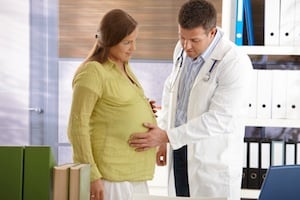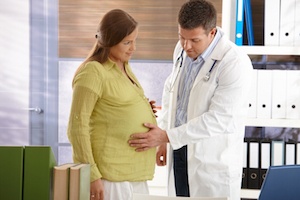
 There are many issues to think about when you're pregnant or considering becoming pregnant using an egg from an egg donor. Among the health issues to consider is the research associating donor egg pregnancy with an increased risk for preeclampsia or hypertension.
There are many issues to think about when you're pregnant or considering becoming pregnant using an egg from an egg donor. Among the health issues to consider is the research associating donor egg pregnancy with an increased risk for preeclampsia or hypertension.
Preeclampsia occurs when there is high blood pressure and proteins spill in the urine; it is associated with serious complications for both mother and baby if left untreated. Hypertension is high blood pressure and can occur within or outside of pregnancy.
Hypertensive disorders during pregnancy affect between 5 and 10 percent of all pregnancies in the United States; gestational hypertension is the most common cause of hypertension in pregnancy. Between 10 and 50 percent of patients who initially are diagnosed with gestational hypertension will be diagnosed with preeclampsia in one to five weeks after the diagnosis.
A study published recently in the American Journal of Obstetrics and Gynecology by Pourya Masoudian, BHSc, et al., analyzed data from previous studies comparing:
This study reviewed a total of 86,515 pregnant women who were observed during their pregnancies sourced from 19 different previous studies. These studies were performed in Spain, United States, France, Israel, Denmark, Finland, UK, Belgium, Italy and Netherland between the years of 1997 and 2014.
Their pooled data demonstrated that the risk of preeclampsia is higher in donor egg pregnancies compared with other methods of assisted reproductive technology (odds ratio, 2.54; 95% confidence interval, 1.98–3.24; P < .0001) or natural conception (odds ratio, 4.34; 95% confidence interval, 3.10–6.06; P < .0001). The risk of gestational hypertension was also increased significantly in egg donation pregnancies in comparison with other methods of assisted reproductive technology (odds ratio, 3.00; 95% confidence interval, 2.44–3.70; P < .0001) or natural conception (odds ratio, 7.94; 95% confidence interval, 1.73–36.36; P = .008).
Egg donation significantly increases the risk of preeclampsia compared with the other methods of ART (2.54 times) and pregnancies conceived naturally (4.34 times). When high blood pressure alone is considered, egg donation pregnancies are at higher risk of gestational hypertension compared with the other methods of ART group (3 times) and pregnancies conceived naturally (7.94 times).
Whether the pregnancy was a singleton or a multiple gestation pregnancy, the results were the same in that egg donor pregnancies still had a higher risk for preeclampsia and gestational hypertension than those in the other methods of ART comparison group and the natural conception comparison group.
Although the risk for high blood pressure and preeclampsia is increased in donor egg pregnancies, the outcome is generally good. If these complications develop, a qualified ob/gyn can manage the patient's care in conjunction with a high-risk pregnancy specialist to achieve a good outcome for the mother and the baby.
To see a board-certified physician with excellent success rates with donor egg pregnancy, make an appointment at one of InVia’s four Chicago area fertility clinics.
Egg donation Infertility treatment IVF InVia Fertility Specialists

Vicki Meagher has worked with InVia Fertility Specialists since 2006. She is our Third Party Coordinator, so she works with our patients that need an egg donor, sperm donor, gestational surrogate, or any combination of the above. She recruits and screens the egg donors for our in-house donor program as well. She loves working with intended parents and is passionate about third party reproduction and the important role it plays in helping patients achieve their dream of starting or extending their family. She is a member of SEEDS - the Society for Ethics for Egg Donation and Surrogacy.
Subscribe to our weekly blog digest

Entire Website © 2003 - 2020
Karande and Associates d/b/a InVia
Fertility Specialists

Comments